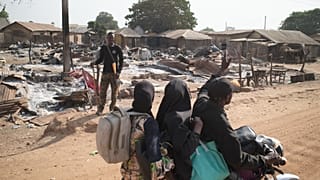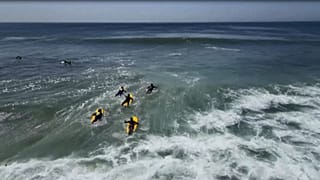France
A French court on Tuesday dismissed a landmark case against TotalEnergies for a massive oil project in Uganda and Tanzania after several NGOs filed a suit to suspend the controversial project.
It was the first case of its kind in France, and activists had hoped it would set a legal precedent to halt projects deemed harmful to the environment and human rights.
Six NGOs that filed the suit argued the development of the East African Crude Oil Pipeline (EACOP) failed to adhere to a "duty of vigilance", a 2017 law that compels companies to avoid grave harm to human rights, health, safety and the environment.
The court on Tuesday ruled the case was "inadmissible", saying the plaintiffs did not correctly follow court procedures against the French energy giant.
It said the plaintiffs submitted accounts to the court in December that were "substantially different" from those that were presented to TotalEnergies in a formal notice in 20 19 when the case was initiated.
The suit was brought by two French and four Ugandan NGOs, which accused TotalEnergies of taking land from more than 100,000 people without adequate compensation.
They also said the company drilled wells in the biodiversity-rich Murchison Falls National Park on the shores of Lake Albert.
Friends of the Earth and Survival, the two French NGOs, and the Ugandan groups denied having substantially modified their submissions to the court.
They "only clarified them and consolidated their arguments with more than 200 documents of supporting evidence", said Juliette Renaud, a campaigner with Friends of the Earth.
The plaintiffs, which can appeal the decision, said they would speak to "the affected communities" about next steps, Renaud added.
- Economic boon -
The $10 billion oilfields and pipeline project has been hailed as an economic boon for Uganda and Tanzania, where many live in poverty, while being strongly opposed by environmentalists.
The project is being jointly developed by TotalEnergies and the China National Offshore Oil Corporation (CNOOC), along with the state-owned Uganda National Oil Company.
The 1,443-kilometre (900-mile) pipeline will transport crude from vast oilfields being developed in Lake Albert in northwestern Uganda to a Tanzanian port on the Indian Ocean.
Lake Albert, a natural border between Uganda and the Democratic Republic of Congo, lies atop an estimated 6.5 billion barrels of crude, of which about 1.4 billion barrels are currently considered recoverable.
Tanzanian Energy Minister January Makamba this month rejected the environmental and rights concerns as "propaganda", saying the country complied with environmental, safety and human rights standards.
Tuesday's ruling in France is the first instance of the "duty of vigilance" being tested in a courtroom.
Several legal proceedings for failure to comply with the "duty of vigilance" are underway against other French companies, including Casino, Suez, Yves Rocher and BNP Paribas.













01:11
Niger military government to sue French uranium giant over environment
01:02
Italian officials on trial over deadly 2023 migrant shipwreck
02:20
French-Nigerian artists team up to craft future hits
00:49
TotalEnergies relaunches $20 billion Mozambique gas project 5 years after jihadist attack
01:05
Corruption trial of Nigeria's ex-oil minister and former OPEC chief opens in London
01:07
Two Norwegians charged over bribes to Congo-Brazzaville president